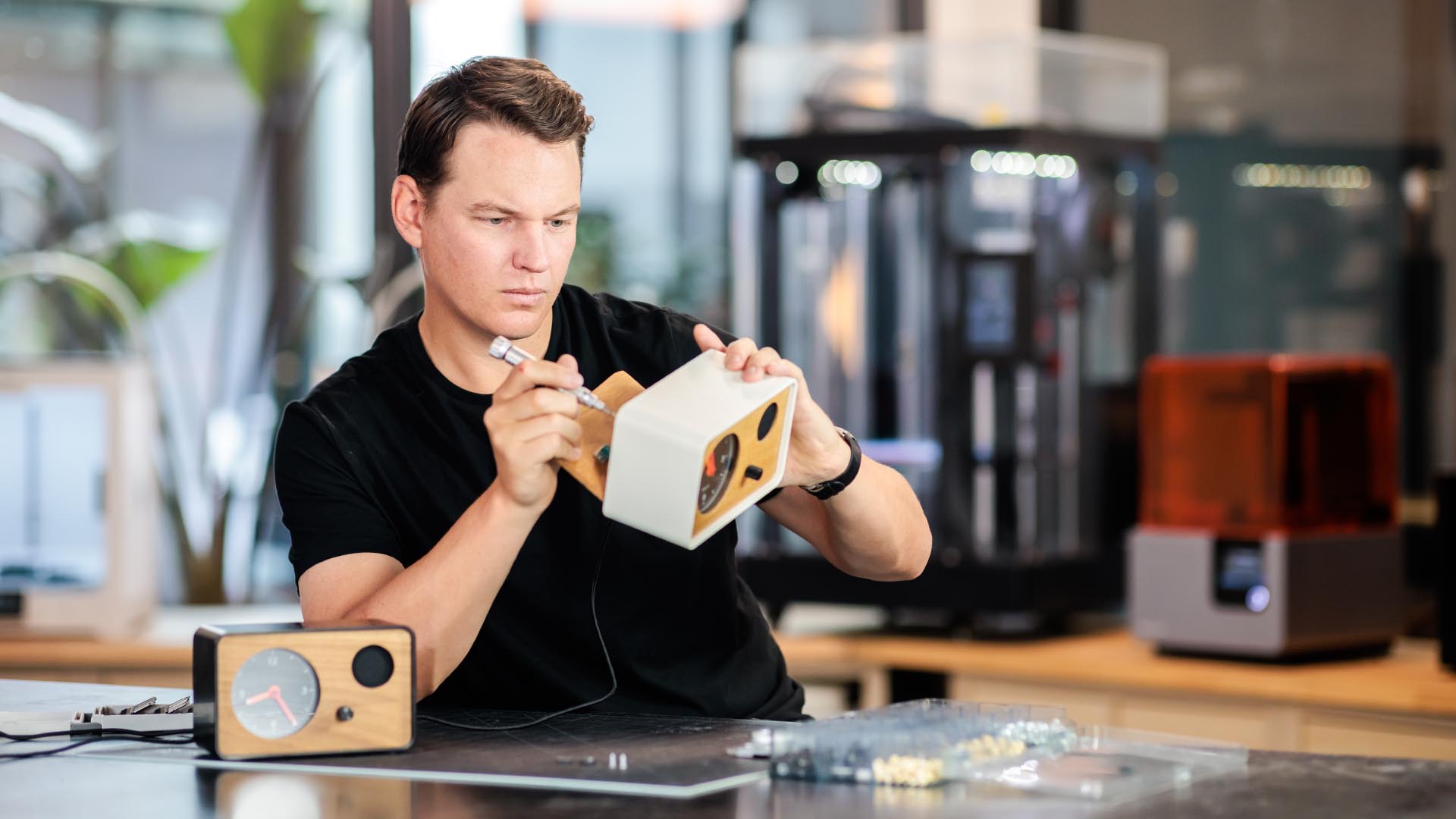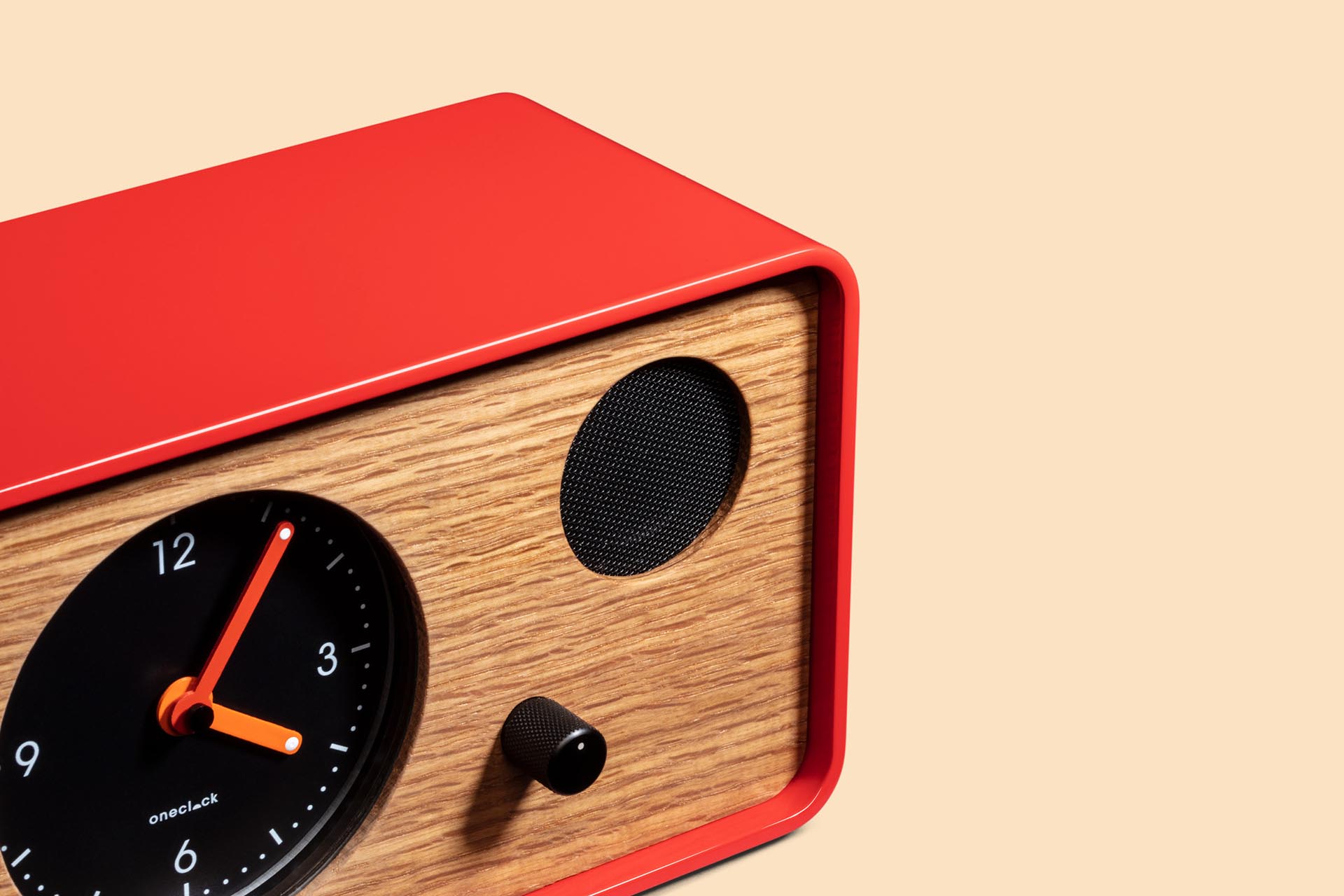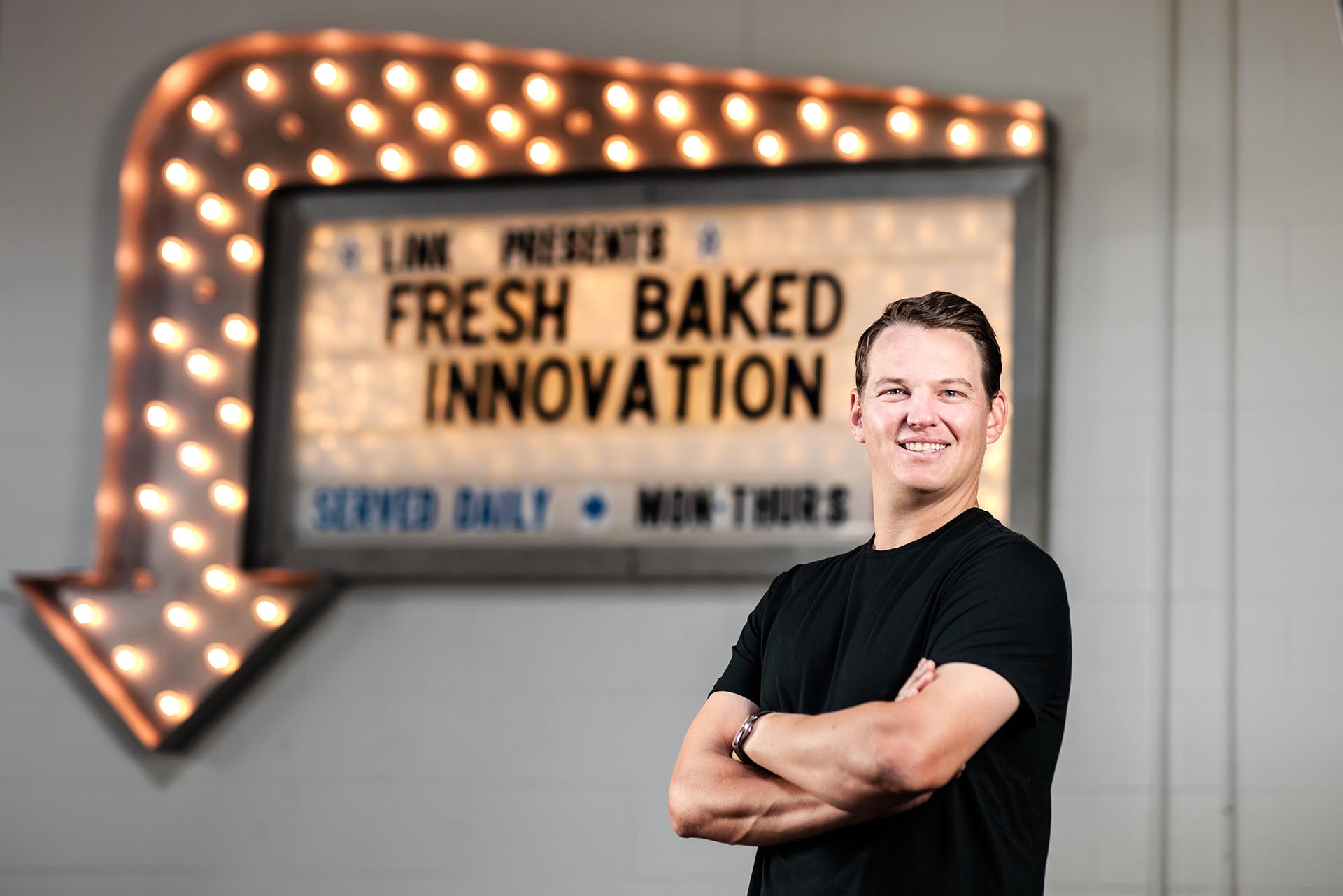Success by design
Schuyler Livingston combines art and science to bring ideas to life for Link Product Development.

Old car dashboards. Incandescent lamps. Warm, soft light.
Those were the evocative elements that industrial designer Schuyler Livingston and the team at Link Product Development prioritized on their mood board as they designed the OneClock, a sleek, audiophilic, analog timepiece that’s raised nearly $2 million in crowdfunding campaigns.
“It’s emotion; it’s nostalgia — that’s the experience you want with this product,” said the 2016 Metropolitan State University of Denver Industrial Design graduate. “And not just that — it’s tough to create something so deceptively simple without any visual fasteners to get that clean, smooth look.”

The OneClock is one of more than 60 projects Livingston has worked on over the past six years at the boutique Denver product-development company. And whether it’s wheelchairs, toys or mountain bikes, the key is getting in the mindset of the end-user experience to make the right choices.
“Link approaches design differently,” Livingston said. “It’s a small team with resources to huddle around clients and figure out the right approach to what they’re really trying to accomplish.”
RELATED: Bringing art home
Part of the secret sauce, he noted, is an end-to-end, full-suite approach that incorporates market considerations, in-depth competitive research and distribution, along with rapid prototyping. Link founder Marc Hanchak prioritizes a “fail early, fail often” approach frequently found in tech startups, a philosophy that’s reflected even in the office’s physical layout.
“Fabrication and prototyping are an integral part of a project’s success,” Livingston said. “You’re able to hop in the shop right next to us and test your ideas quickly to see which solutions work and which don’t.”
Link also recognizes the symbiotic role that applied education plays in training the next generation of designers. Link regularly hosts MSU Denver interns, providing career-building opportunities for students and nurturing a workforce pipeline for the firm. Livingston has also served as an affiliate faculty member at the University, teaching surface-modeling classes, while he and Hanchak continue to guest-lecture there as subject-matter experts.
Whether it’s industry or individual products, sustainability is always at the forefront of the design group’s strategy. Against a standard operating backdrop of planned obsolescence, Link designed the OneClock with a 10- to 20-year lifespan in mind.

Livingston credited his MSU Denver professors for this insight into calculating comprehensive environmental impacts and other factors in his career success, including Amy Kern, Ted Shin and “the whole crew” in the MSU Denver Department of Industrial Design, as well as Aaron Brown in Mechanical Engineering Technology. The creativity-based Art classes and the applied knowledge from his combination Industrial Design major with Mechanical Engineering Technology minor help breathe life into those ideations, he said.
Livingston’s career path wasn’t a straight line. After a few zigzags in his higher-education journey, it was a chair — specifically, a bent wooden lounge in his Advanced Furniture Design class — that helped him find a seat at the product-design table.
“We were building scale models, examining ergonomics and conducting competitive research,” he said. “I remember asking, ‘Why is it this color? Why is it the shape it is?’
“That’s when it all clicked. And though I definitely bit off more than I could chew at the time, it’s all part of the process of becoming a better designer.”







